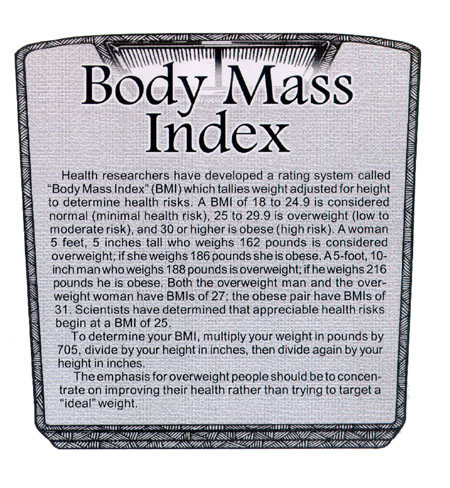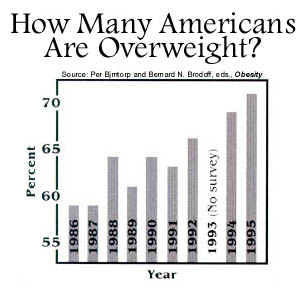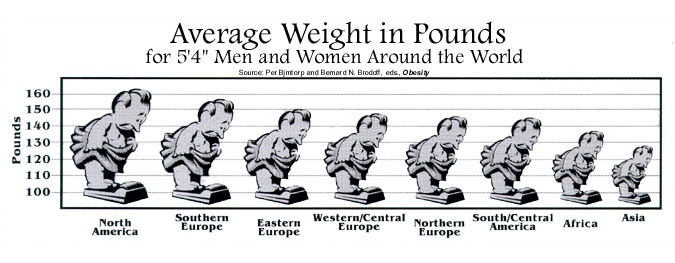by Martin G. Collins
Forerunner,
January 2000
A Realty Times magazine article, "Gluttony . . . Sheer Gluttony: Tyson's Connecticut City—uh, home—goes on the market," tells of how prizefighter Mike Tyson bought a Farmington, Connecticut, estate for $3 million and made some "modest" upgrades: a 3,500 square-foot nightclub designed for 1,000 people, and a 1,500 square-foot exercise facility. The house has 18 bedrooms, 24 full bathrooms, 14 half-baths, an indoor racquetball court, 7 kitchens, a theater, an elevator, a 3-story foyer, and 50 skylights. Tyson has admitted to Prime Time Live that he has probably visited it only five times, yet after a year, he grew tired of his 56,000 square-foot pastime, putting it up for sale for $25 million!
Although Tyson has invested millions upgrading the estate, Connecticut realtors believe he will not get much beyond the initial $3 million for it since $250,000-500,000 homes surround it. What a waste—millions of dollars squandered in gluttonous spending.
With human reasoning being what it is, it is not surprising to see our present society deeply against self-responsibility. Most people today have convinced themselves that they are not personally responsible for their actions, and this applies to gluttony. They reason, "It must be genetic," or "I have a disease." Gluttony is considered merely socially unpleasant rather than a sin. Few in this society know what it is or why it is wrong.
What is gluttony? Merriam Webster's Collegiate Dictionary: Tenth Edition defines a glutton as "one given habitually to greedy and voracious eating and drinking." Voracious is "having a huge appetite: ravenous; excessively eager: insatiable." Synonyms for "gluttony" are greed, avarice, gorge, epicure, cram, stuff and guzzle. Children who eat voraciously are said to "eat us out of house and home," and an adult who eats often "plays a good knife and fork."
We associate gluttony most often with overeating, but it can occur in many other forms such as drinking, smoking, gambling, sex, accumulating material things, or even too much studying and researching of a narrowly defined subject in theology, health, genealogy—the list is endless. The key term, however, is "too much." Signs of gluttony are too soon, too eagerly, too quickly.
Gluttony Is Destructive
The Bible ascribes a great deal of destructive power to gluttony, as in Proverbs 30:21-22: "For three things the earth is perturbed, yes, for four it cannot bear up: . . . A fool when he is filled with food. . . ." Physically, what is so harmful about it?
An old English proverb says, "Gluttony kills more than the sword." Another maintains, "There are more gluttons than alcoholics in the grave." This certainly seems true today. In the last five years, sales of oversized coffins at the nation's largest casket company are up 20 percent. Why? The November 8, 1999, issue of U.S. News and World Report answers this in an informative article entitled, Why We're Fat:
Both men and women are getting fat in epidemic proportions. Well over half of all American adults—about 63 percent of men and 55 percent of women age 25 and older—are overweight. Last week in a special issue devoted entirely to obesity, the Journal of the American Medical Association reported new statistics that are nothing short of astonishing for a nation seemingly so obsessed with health and fitness: The rate of obesity—18 percent—has soared from 12 percent just seven years ago, making the United States now secure in its position as the fattest nation in the developed world.
"The rate is shocking," says Jeffery Koplan, director of the Centers for Disease Control and Prevention, "and it means that we have a huge public health problem." Indeed, depending on weight and age, obesity significantly increases the risk of high blood pressure and high cholesterol, diabetes, and gallbladder disease.
Gluttony is sheer defiance of reasonable and balanced behavior. Benjamin Franklin says of man's proclivity to overeat, "In general, mankind, since the improvement of cookery, eats twice as much as nature requires." Each person must determine what is necessary to sustain him, measuring his indulgence in eating and drinking to ensure it is healthy for him.
Obese men risk serious health problems, as Why We're Fat relates:
The potbelly that men often grow in their middle years is not just unattractive, it's dangerous. . . . The midlife paunch, which doctors call "visceral fat," poses a risk because it surrounds the internal organs. It releases fatty acids that make their way into the liver, diminishing the organ's ability to process the hormone insulin, eventually causing diabetes. The fat also affects how the kidneys process insulin, a factor that scientists say may lead to high blood pressure. For every 10 percent increase over normal weight, men and women have about a 20 percent jump in risk for heart disease. [See the inset, "Body Mass Index," to see how health officials determine obesity.]
Obesity is a terrible problem, and unlike other epidemics like a flu epidemic, it will not go away on its own. Some would have us believe that there is nothing wrong with being fat—that people just find it distasteful and assume it is unhealthy. Actually, doctors say fat is unhealthy because a multitude of studies for decades has shown it to be so. Former Surgeon General C. Everett Koop says, "We know that excessive weight fosters everything from diabetes and heart disease to breast cancer, colorectal cancer and osteoarthritis." Prostate, gallbladder, cervical and ovarian cancers have also been linked to obesity.
Gluttony Is Sin
When we use food or drink in a way that injures our health or impairs our mind, we are guilty of the sin of gluttony. King Solomon, a man familiar with feasting and abundance, advises, "Blessed are you, O land, when your king is the son of nobles, and your princes feast at the proper time—for strength and not for drunkenness!" (Ecclesiastes 10:17). We should eat food primarily at meal times and for strength, not satiation.
|
|
Although we all enjoy snacks occasionally, they are most often of poor quality, well known as "fat foods" or "junk foods" for their ability to fatten us up with little or no nutritional value. While adults consume plenty of junk food, teenagers eat it voraciously, one factor in why so many of our youth are overweight (adolescent obesity has jumped 40 percent in a little over a decade). The cycle of gluttony does not end once they reach adulthood.
Perhaps not so surprising to those who are observant, teens ingest an average of 9 percent of their calories from soft drinks. Food and drink proportions have inflated to the point that marketers need a new vocabulary to describe them. Selections no longer stop at "large"—they are now "jumbo" or "supreme." The original Coca-Cola came in a statuesque 6.5-ounce bottle, and in Europe it is still about 8 ounces. In America, however, machines now dispense 20-ounce soda bottles, while convenience stores sell 64-ounce buckets of drink—10 times the original serving size!
Eating disorders such as bulimia nervosa and anorexia are commonly associated with gluttony. As an affluent nation, we binge and starve and binge again, swinging from food-related anxiety to depression and guilt to pursuing sensory pleasure in food "addiction." For instance, bulimia is characterized by self-perpetuating and self-defeating cycles of gluttonous binge-eating and purging. During a "binge," the person consumes large amounts of food in a rapid, automatic and helpless fashion. Though this may repress hunger, anger and other feelings, it eventually creates physical discomfort and anxiety about weight gain. So the person "purges" the food eaten, usually by inducing vomiting and resorting to some combination of restrictive dieting, excessive exercising, laxatives and diuretics.
According to the World Health Organization, 300,000 Americans die prematurely each year because of obesity. Among lifestyle-related illnesses, only cigarette smoking (at approximately 400,000 deaths) has a higher toll. But smoking deaths are declining, while obesity deaths will continue to climb as long as obesity does.
Of course, eating is not a sin, but if one eats in a manner that is unhealthy, it is sin. Poor eating habits, such as binge eating, constant eating for satiation and junk food inhalation, slowly destroy the human body.
Lust and Greed
How do lust and greed relate to gluttony? Basically, lust is an intense longing or excessive craving for something—anything—and greed is excessive or insatiable desire to accumulate things. Lust and greed are never satisfied, as James 4:1-2 says: "Where do wars and fights come from among you? Do they not come from your desires for pleasure that war in your members? You lust and do not have. You murder and covet and cannot obtain." Too much of even a good thing can be bad. Among other afflictions, too much eating can cause obesity and gout, and too much drinking, cirrhosis of the liver and depression.
|
|
In Numbers 11, the Israelites in the wilderness, inclined to be excessive, let lust and greed rule them. Their gluttony exposes other sins hidden below the surface: ingratitude, wastefulness, lust, greed, covetousness and licentiousness. The chapter begins with some of them complaining of being tired of eating only God-given manna. Displeased with them, God burns up some of the complainers in the outskirts of the camp as a warning (verse 1). Still, many give into their desire for other types of food, especially meat. "Now the mixed multitude who were among them yielded to intense craving; so the children of Israel also wept again and said, ‘Who will give us meat to eat?'" (verse 4).
Moses, tired of the Israelites complaining about not having meat, complains to God about the complaining Israelites (verses 10-15)! God, although not pleased with the Israelites, tells him that He would provide the entire nation with meat (verses 16-20). Moses immediately assumes it would come from the flocks and herds (verses 21-22), but God performs a miracle to further show His providence: Quail flutter just above the ground near the camp for about a day's journey in all directions!
And the people stayed up all that day, all that night, and all the next day, and gathered the quail (he who gathered least gathered ten homers [about ten donkey loads]); and they spread them out for themselves all around the camp. But while the meat was still between their teeth, before it was chewed, the wrath of the LORD was aroused against the people, and the LORD struck the people with a very great plague. So he called the name of that place Kibroth Hattaavah [Graves of Craving], because there they buried the people who had yielded to craving. (verses 32-34)
God is furious when we yield to intense craving—lust—because it controls our will. Self-control is a fruit of the Holy Spirit, and without it a person cannot produce other fruits of the Spirit. The Israelites, devoid of self-control, could not conform to God's will.
In Psalm 78, the psalmist describes God's care of Israel in the wilderness and how the people reacted to His will. He includes a description of the event in Numbers 11:
But they sinned even more against Him by rebelling against the Most High in the wilderness. And they tested God in their heart by asking for the food of their fancy. Yes, they spoke against God: They said, "Can God prepare a table in the wilderness? Behold He struck the rock, so that the waters gushed out, and the streams overflowed. Can He give bread also? Can He provide meat for His people?"
Therefore the LORD heard this and was furious; so a fire was kindled against Jacob, and anger also came up against Israel, because they did not believe in God, and did not trust in His salvation. Yet He had commanded the clouds above, and opened the doors of heaven, had rained down manna on them to eat, and given them the bread of heaven. Men ate angels' food; He sent them food to the full [satiation, margin].
He caused an east wind to blow in the heavens; and by His power He brought in the south wind. He also rained meat on them like the dust, feathered fowl like the sand of the seas; and He let them fall in the midst of their camp, all around their habitations. So they ate and were filled, for He gave them their own desire. They were not deprived of their craving; but while their food was still in their mouths, the wrath of God came against them, and slew the stoutest of them, and struck down the choice men of Israel.
In spite of this they still sinned, and did not believe in His wondrous works. Therefore their days He consumed in futility, and their years in fear. (verses 17-33)
The Israelites lost control of themselves by yielding to their cravings. Despite all God had provided for them, they quickly forgot and gave their will to the god of appetite. The result was futility, destruction and death.
Wisdom's Children
Matthew 11:18-19 provides a principle to determine if our actions are gluttonous. Responding to accusations of extremes in eating and drinking against John the Baptist and Himself, Jesus remarks:
For John came neither eating nor drinking, and they say, "He has a demon." The Son of Man came eating and drinking, and they say, "Look, a gluttonous man and a winebibber, a friend of tax collectors and sinners!" But wisdom is justified by her children.
What are the children of wisdom? Good works and good fruit. Whether what we do is wise or foolish is seen in the fruit we bear and in what we accomplish. An alcoholic produces sorrow for himself and his family, battered wives and children, poor health and a shorter life. A glutton produces a bad example for his family and his brethren, poverty, poor health and eventually death. We must control our desires because excess desire is the driving force behind gluttony. When we lose control of it, we sin, feeding the god that is in our belly, the god of excess, the god of too much, too fast, too eagerly.
Another interpretation of "wisdom is justified by her children" is that those who follow the wisdom from above recognize and live their lives based on truth. By their example in living wisely and righteously, they justify, prove, that it is the right and reasonable way to live. The way the wise live destroys the credibility of false accusations. Avoiding gluttony is one way to show that we are living in wisdom. The foolish—the opposite of the wise—tend toward gluttony.
The Institute of Medicine thinks the problem "must lie in the powerful social and cultural forces that promote an energy-rich diet and a sedentary lifestyle." But the problem is deeper than that! It is rooted in human nature, which we must overcome and can only be overcome with the help of God's Holy Spirit. When we nurture lust and greed, gluttony is a byproduct, a sign that something of a spiritual nature is eating us.
|
|




